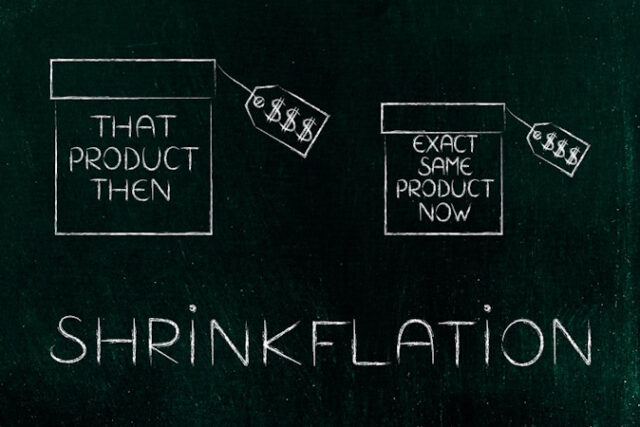
By Leslie Patton and Deena Shanker
First there was ‘shrinkflation.’ Now, consumers are confronting ‘upflation’ as companies seek to turn around the $100 billion personal care and beauty market.
Procter & Gamble Co. is charging $14 for all-over body deodorant — double the cost of a standard stick. Gillette sells a $15 intimate razor specifically for “tricky areas” for $5 more than the regular Venus. And Carefree’s newest pads are meant to catch all sorts of leaks. Those cost more than the old version, too.
The spate of new uses for old products is a somewhat awkward attempt by some of the world’s biggest packaged goods-makers, including P&G, Unilever Plc and Edgewell Personal Care Co. to claw back sales in the US’s more than $100 billion personal care and beauty market. In the high-inflation, post-pandemic years, cost- and waste-conscious consumers have cut back on what were once essential items. P&G, Unilever, Edgewell and most every other packaged good company has posted multiple quarters of slow or declining sales volumes.
Industry wide, retailers sold 20% fewer razor blades last year compared to 2019, according to market researcher Circana. Deodorant sales dropped 6.5% during the same period. In grocery aisles, bread, milk and beloved salty snacks are on the decline, too.
Packaged-goods giants kept revenue up for years by raising prices and reducing package sizes, a practice known as ‘shrinkflation.’ But consumers only tolerate that for so long before seeking out alternative solutions. In some cases, shoppers are trading down to cheaper options, like Amazon’s in-house brand, Amazon Basics. Others are buying fewer essential items altogether. To win those people back, companies have come up with a fresh tactic: ‘upflation,’ an attempt to create new applications for things consumers have decided they no longer need as much of — and upcharging for them.
Disclaimer
Artificial Intelligence Disclosure & Legal Disclaimer
AI Content Policy.
To provide our readers with timely and comprehensive coverage, South Florida Reporter uses artificial intelligence (AI) to assist in producing certain articles and visual content.
Articles: AI may be used to assist in research, structural drafting, or data analysis. All AI-assisted text is reviewed and edited by our team to ensure accuracy and adherence to our editorial standards.
Images: Any imagery generated or significantly altered by AI is clearly marked with a disclaimer or watermark to distinguish it from traditional photography or editorial illustrations.
General Disclaimer
The information contained in South Florida Reporter is for general information purposes only.
South Florida Reporter assumes no responsibility for errors or omissions in the contents of the Service. In no event shall South Florida Reporter be liable for any special, direct, indirect, consequential, or incidental damages or any damages whatsoever, whether in an action of contract, negligence or other tort, arising out of or in connection with the use of the Service or the contents of the Service.
The Company reserves the right to make additions, deletions, or modifications to the contents of the Service at any time without prior notice. The Company does not warrant that the Service is free of viruses or other harmful components.












